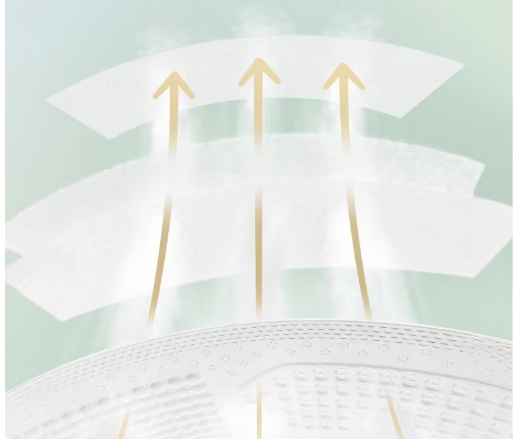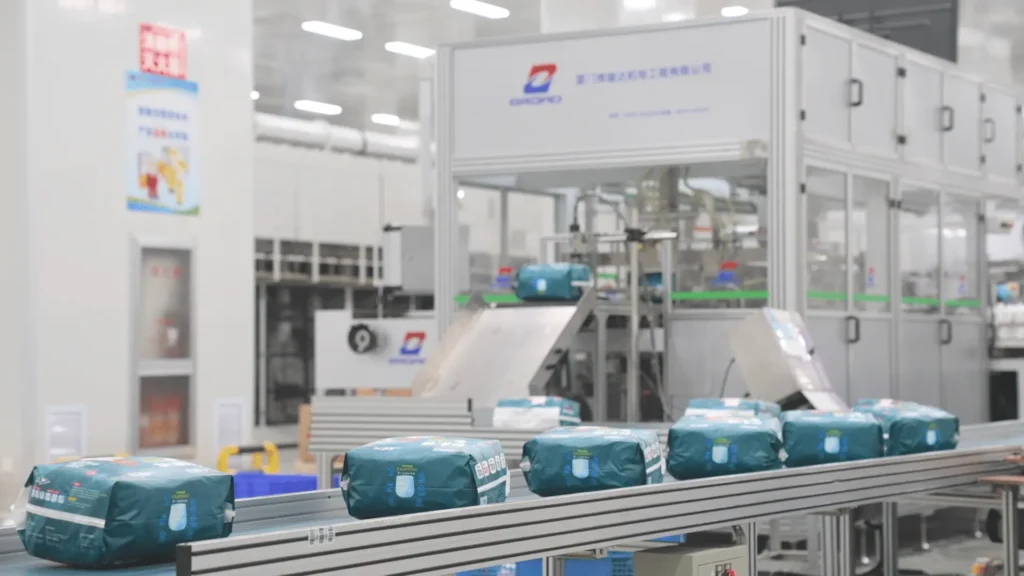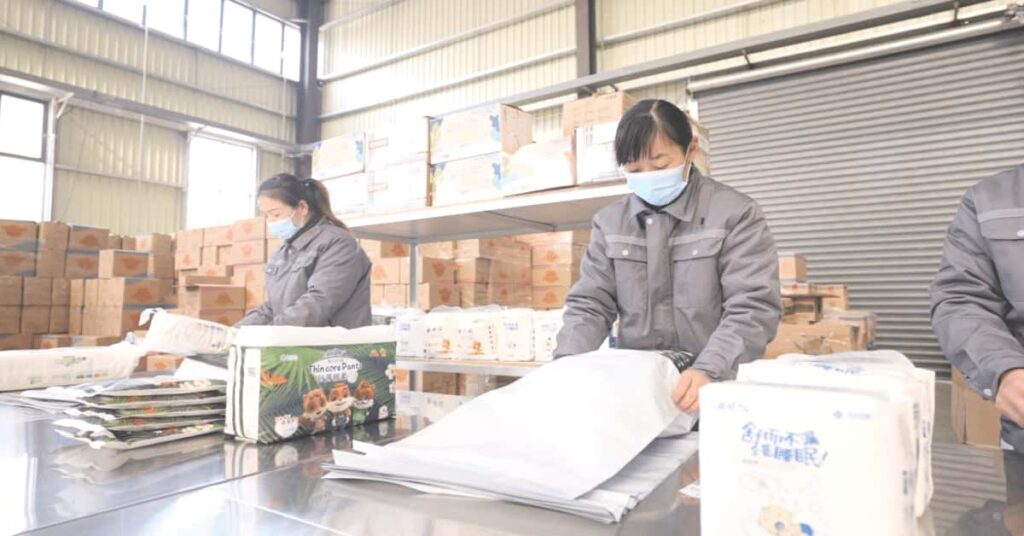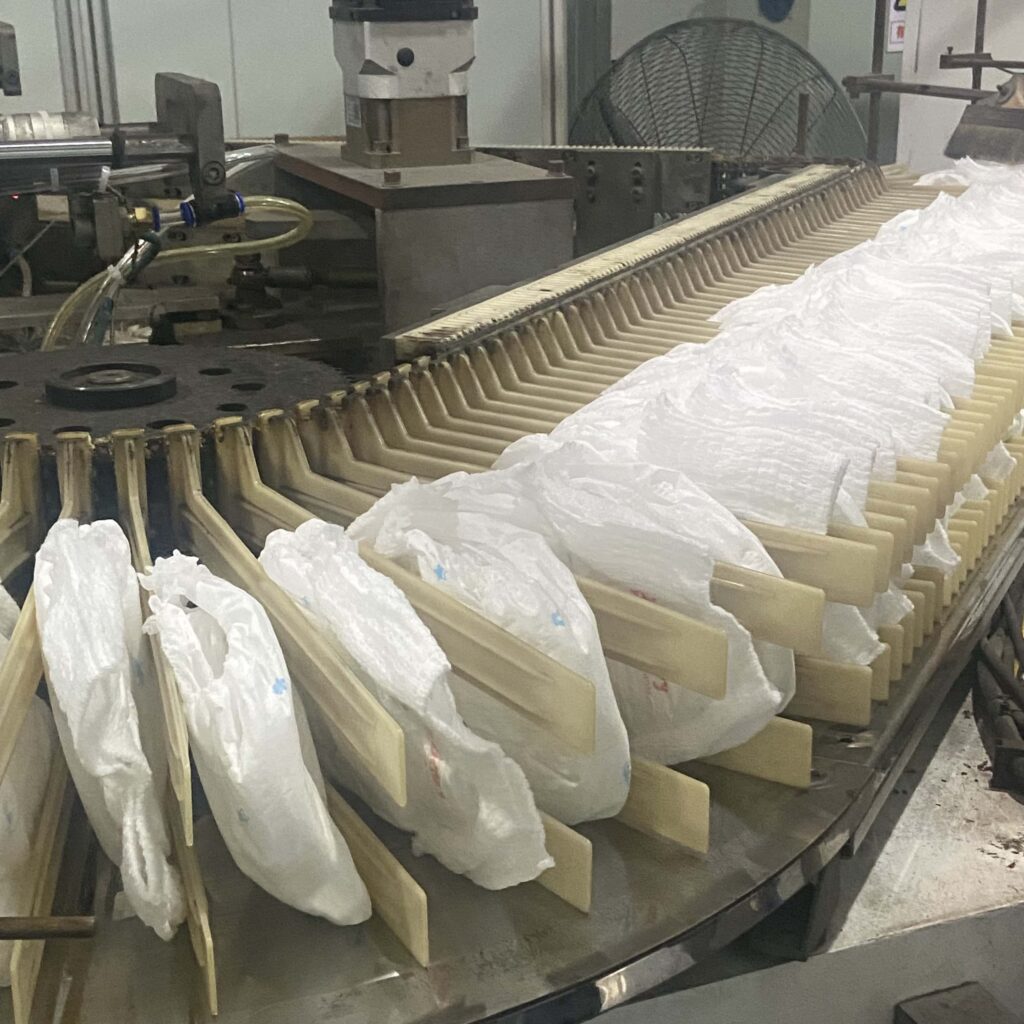Table of Contents
Every parent wants the best for their baby—especially when it comes to something as essential as diapers. But have you ever wondered how high-quality diapers are actually made? Behind each soft, absorbent piece is a high-tech, hygienic, and precisely controlled process that ensures your baby stays dry and comfortable.
Let’s take a look inside the world of modern diaper manufacturing—from raw materials to finished product.
1. It Starts with the Right Materials
High-quality diapers begin with gentle, skin-friendly materials:
Top sheet (the layer that touches your baby’s skin) is made from soft, nonwoven fabric that feels like cotton and quickly wicks away moisture.
Absorbent core contains high-performance polymer beads known as SAP (super absorbent polymers), which can lock in many times their weight in liquid.
Back sheet is a waterproof yet breathable layer that prevents leaks while allowing airflow.
These materials are chosen not just for performance, but also for safety—free from harmful substances and allergens.

2. Multi-Layered Structure, Each with a Purpose
A diaper may look simple, but it has a clever layered design:
Top layer: Keeps skin dry by drawing liquid in
Distribution layer: Spreads the liquid evenly
Absorbent core: Locks in moisture and prevents rewetting
Leak guards & elastic cuffs: Prevent side leakage
Outer layer: Seals everything in with breathable protection
This design keeps your baby dry for hours, even during overnight use.

3. High-Speed, Fully Automated Production
In a modern diaper factory, robots and precision machines take center stage. Every diaper goes through a fast and seamless process:
Materials are unwound, layered, and cut with exact measurements
Adhesives are applied automatically to fix layers together
Elastics and tapes are added for a snug fit
Each diaper is folded, pressed, and prepared for packing
An advanced diaper machine can produce over 1,000 diapers per minute, ensuring speed without compromising hygiene or consistency.

4. Quality Checks at Every Step
Each diaper may look identical, but only those that meet strict standards make it to store shelves. Here’s how factories ensure quality:
Sensors monitor size, shape, and material placement in real-time
Absorption tests are done to confirm leak protection
Random sampling ensures products meet international safety and comfort standards
Some factories even allow traceability—so you can scan a batch code to see when and where your baby’s diaper was made.

5. Sealed and Ready for Delivery
Once diapers pass inspection, they go through automated packaging lines:
Sealed in moisture-proof, hygienic packaging
Labeled with production date and batch info
Shipped in climate-controlled containers to global markets
Whether you’re buying from a store or receiving them at your doorstep, rest assured that the journey from factory to baby is tightly controlled.

Conclusion: There’s More Than Meets the Eye
What looks like a simple baby product is actually the result of advanced materials, smart design, and strict quality systems. High-quality baby diapers are made with your child’s comfort, safety, and well-being in mind—down to the last detail.
So next time you change your baby’s diaper, you’ll know there’s a world of technology and care behind that small but mighty piece of protection.
If you’re ready to go beyond brand names and explore the actual factories behind them, don’t miss our in-depth guide:
👉 Top 10 Baby Diaper Manufacturers in China 2025 | OEM & Wholesale
👉 Which Chinese Diaper Brand Is Best for You? A Data-Driven Guide
Discover leading OEM suppliers, production capabilities, certifications, and how to find the right factory for your private label needs.

